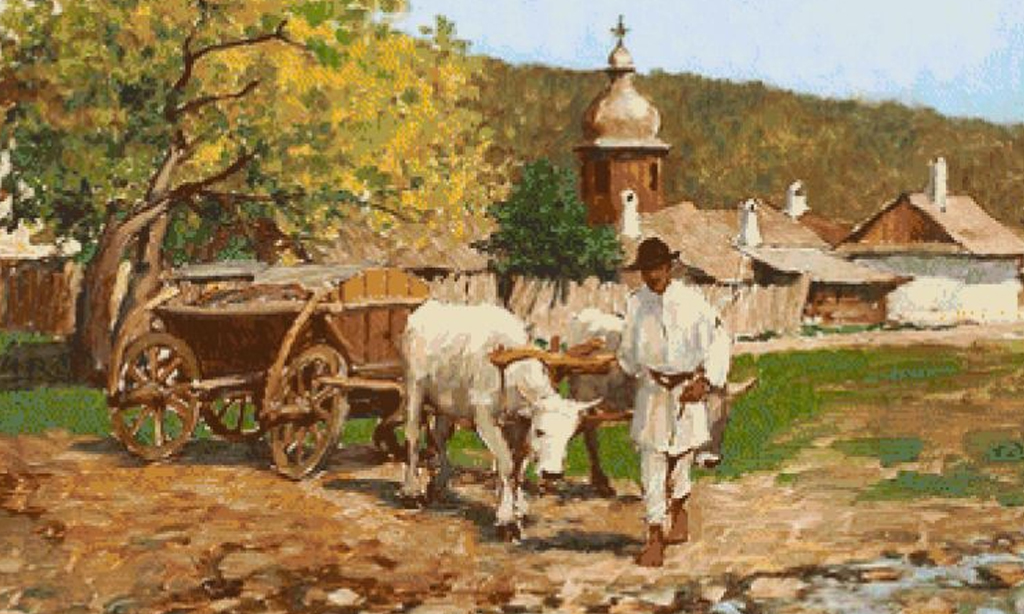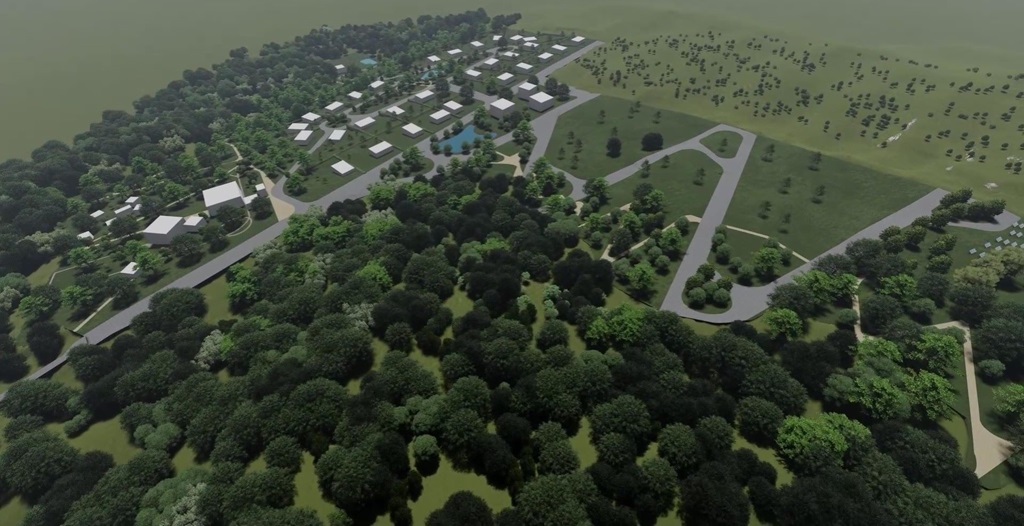Village 3.0 – roECOvillage
The community organization conceptually termed “village” emerged, like most human-developed community organizations, to fulfill its basic needs in accordance with the context of its evolution over time and space.
Subsequently, cities developed as “complex localities, with autonomous administrative structures and industrial, commercial, political, and cultural functions” followed by large urban concentrations and metropolises, whose development was boosted by the achievements and discoveries of the industrial revolution.
Everything in search of the most efficient and easy fulfillment of those same basic needs, the physiological one, such as safety and belonging first, then self-esteem, which, once fulfilled, facilitated the ascent to the top of the pyramid, towards self-actualization (realization of personal potential) and self-transcendence (the sense of meaning and purpose).
Romanian villages, and not only them, have experienced a strong decline in the last 70 years, greatly accentuated in the last 30 years, primarily because cities, apparently more promising in fulfilling the aforementioned needs, have multiplied and grown, thereby engulfing more and more rural organizations around them, or attracting villagers to the cities as a workforce, thus contributing to their rapid depopulation.
An important moment for Romania was the migration of the workforce to more developed Western countries, resulting in the increase of depopulation of villages and becoming almost total in some of the more remote and isolated villages.
At some point, there arose the concern for the “revival of the Romanian village,” and in the last 10 years, the migration trend from village to city has reversed for reasons related to the evolution of humanity, the best example being the “Moved to the Country – Life Without a Clock” group, which promotes relocation to rural areas.
Paradoxically, perhaps it’s not about the “revival of the Romanian village”, but rather about the revival of humanity through the everywhere village, a Romanian Village 3.0, a remodeled roECOvillage arranged according to the deeper knowledge and understanding available to us today.
Starting from here, we could reshape the entire society on more balanced bases aligned with the natural realities of Life.
“I believe that eternity was born in the village. Here, every thought is slower, and your heart beats less often, as if it weren’t beating in your chest, but deep in the earth somewhere.”
These are the well-known verses of the poem „The Soul of the Village” written by one of the most representative Romanian poets, Lucian Blaga, due to which the expression „eternity was born in the village” has become emblematic for describing the Romanian village.
The verses of Lucian Blaga have eternity beyond his poetic work, owing to the profound understanding of human nature, which, as the expression “human nature” so clearly illustrates, is about the natural inclusion of humans in Nature, natural and All and represents Life itself.
Man needs to know, understand, and perceive himself as a dynamic natural continuity, with the quality of being without a definite beginning or end, in a continuous, incorporable change.

In the article “from-conceptual-to-factual/“ on the website’s blog, I showed how “A concrete example of what Pădureni’s intention represents is the fact that we know physical and mental health are built and maintained continuously and are a result of how I think and act, how I identify and relate to Existence. The project is close to nature, among other things, because, in the “adaptive process of deconstructing patterns of our mental map, completing perceptions, cultivating presence, and expanding consciousness,” healthy landmarks for the brain are necessary, natural cycles, sounds, colors, smells, shapes, and lively textures, beings, natural, innate chemistry and energy, so that Life recognizes Life, and the human perception process in All is supported.”
Biophilia, human’s need for nature, is no longer „just” a common-sense theory, but it is supported with decades of scientific research showing nature is important and crucial for mental and physical health, creativity, children’s happiness, and ultimately for everything that defines human existence.
In fact, as long as we scientifically demonstrate that “nature is very important for humans” and we are not clear to the last cell that humans are Nature, we still do not know enough about ourselves and our role.
The Village 3.0, the Romanian Village 3.0 – roECOvillage, is envisioned as a biophilic, regenerative, intelligent, modern, ecological village designed for the realities of today’s lifestyle, with a focus on researching a lifestyle of the future where the natural inclusion of humans in Nature, natural, All, and the perception of dynamic natural continuity in continuous, incorporable change, is the everyday reality.
To develop a Village 3.0, more than just technology and the construction of environmentally friendly houses with pleasant landscaping are needed; it requires the application of design principles for well-being, community, communion, for natural inclusion.
The team initiating the project and establishing the village assumes responsibility for activating the community where villagers buy houses and settle in for the long term, thus creating the potential for a deep connection with the place and community members.
Activating a viable community requires a significant process of selecting residents to ensure a healthy balance between diversity and alignment with joint intentions.
The Village 3.0 is a model of community structure owned and managed by its residents who take over ownership of the village, assume the roles of self-governance, and generate the resources necessary to achieve the chosen purpose, mission, and, most importantly, the dynamic natural continuity.

The relationship with nature is a key aspect of Village 3.0, which emphasizes maintenance, afforestation, regeneration, integration into a biodiverse ecosystem, and supporting alignment with the natural realities of Life.
Creating a Village 3.0 is facilitated by multidisciplinary teams, architects, engineers, community designerss, landscape designers, regenerative ecology specialists, experts in local legal and economic systems, brand and identity specialists.
The Romanian Village 3.0 – roECOvillage, “Pădureni Sustainable Community” is a project initiated with the intention of addressing all these aspirations, together with all those inspired and
willing to participate concretely in the various ways in which the project exists or will need.
P.S.investmenttip:
The investments allocated to this model of living, Village 3.0, have all the chances to be among the most viable investments possible right from the moment of construction, with a high potential for their value to increase as societal evolution clearly heads towards a Society 3.0, a sustainable society of the future.